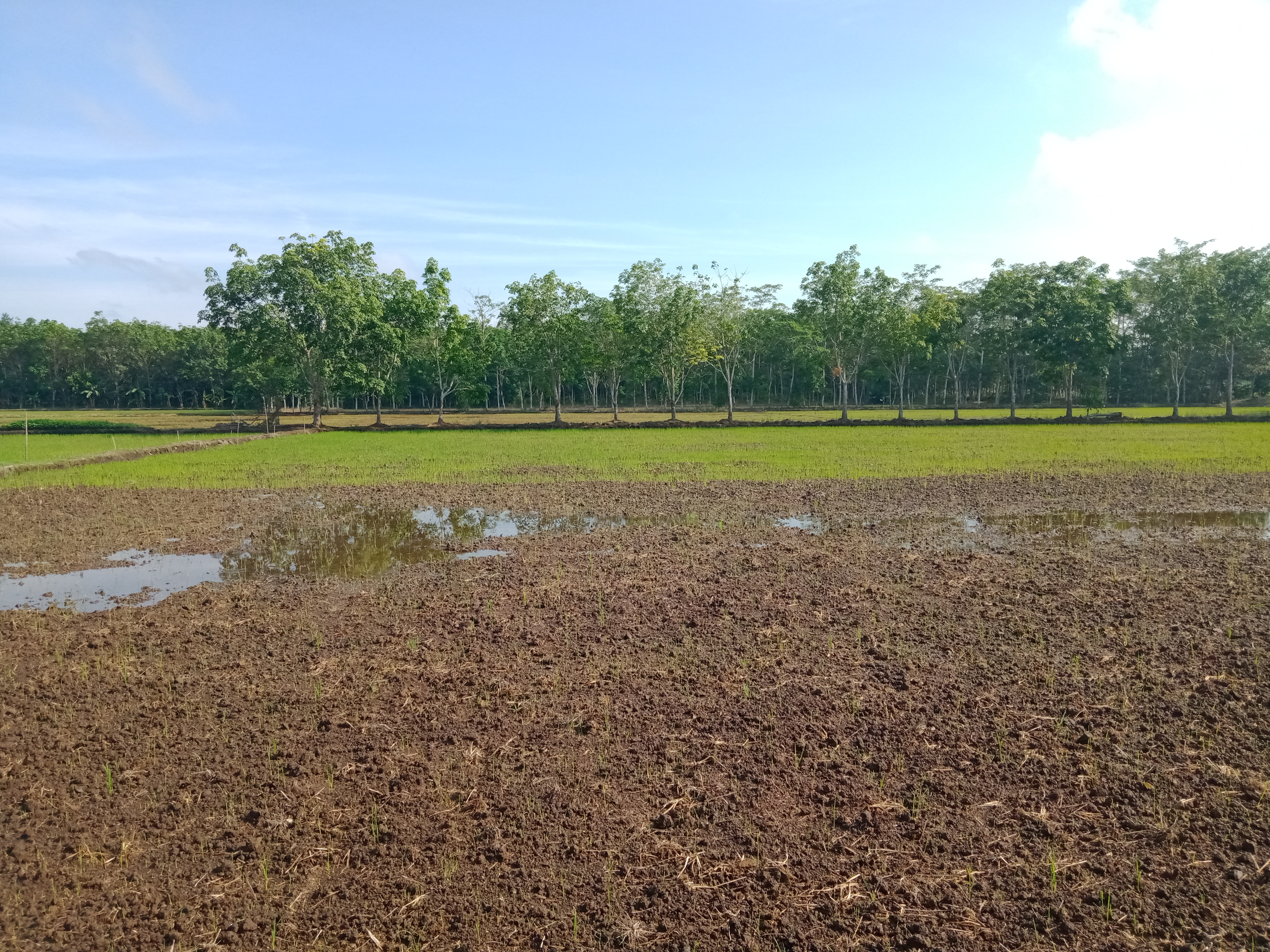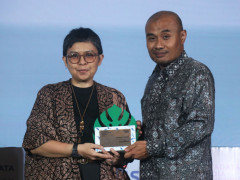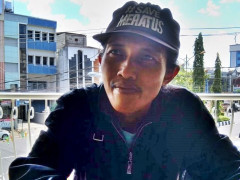When Fishermen in Rukam Village of Jambi Province Lose Their Fish
By Yitno SupraptoSouth Kalimantan Prepares Ten Thousand Hectares for Food Estate Purposes, How Critical Is It?

Another plan has emerged to establish a Food Estate project in South Kalimantan, although the Food Estate project in Central Kalimantan has not been completed. The provincial government has even offered agricultural land in a peat swamp and tidal swamp ecosystems to the central government. This covers an area of approximately 10,000 hectares.
The South Kalimantan Provincial Government is preparing itself to be a part of the national Food Estate project, although Food Estate related issues in Central Kalimantan remain unanswered. This raises concerns that the Food Estate area in South Kalimantan will cause damage to ecosystems, similar to the damage caused by the project in Central Kalimantan because there is concern that this project is not oriented to the environmental conditions, as well as the local community socio-economic conditions.
South Kalimantan Food Estate Program Plan
Head of the South Kalimantan Food Crop and Horticulture (TPH) Office, Syamsir Rahman, stated that the land allocated for the Food Estate is distributed in two districts, i.e. Tanah Laut and Batola Districts, which have adequate carrying capacity and farmer resources, an important element in developing the Food Estate program.
"For Tanah Laut, we will allocate land in Kurau District. For Batola District, we will allocate land in the Anjir area. Each covers an area of 5,000 hectares and both combined cover a total area of 10,000 hectares," said Syamsir to Pantau Gambut, recently.
This is inversely proportional to the small number of farmers in the Central Kalimantan area, according to Syamsir. For example, the Dadahup Sub-District, Kapuas District, Central Kalimantan needs to acquire additional farmers and cultivators.
"Furthermore, the land (Kurau and Anjir) is also fertile for agricultural cultivation. Therefore, offering these two areas for the project was an obvious choice," explained Syamsir. Moreover, South Kalimantan does not need to re-clear the land like the case of Central Kalimantan, because this area was already used for agriculture activities.
He also added that the South Kalimantan Food Estate development will use the agricultural corporation model promoted by the central government. Using this model, Syamsir claims that farmers participating in the program will have a better understanding of farming patterns, from upstream to downstream.
"Farmers will have an understanding about planting, production, to marketing. If not for the farmers, then what’s the use?” said Syamsir.
The next question is, when will this project be implemented? Syamsir could not provide a fixed timeline. He explained that the development of the Food Estate project in South Kalimantan will depend on the Government’s successful development of the land in Central Kalimantan Province. Syamsir also admitted that he did not want to rush implementation without having pilots in other regions.
"The first stage of the Food Estate project will be implemented in Central Kalimantan and South Sumatra. Therefore, South Kalimantan and several other provinces are also requested to prepare the land while waiting for the progress in Central Kalimantan," he said.
Immature Concepts and Concerns of Ecosystem Degradation
Banjarmasin-based environmental issues activist, Hamdi, encouraged the provincial government to conduct a comprehensive study and involve experts before implementing this project. In his opinion, agricultural activities in the peatland ecosystem require particular treatment.
"Peatland is vulnerable if used for agricultural cultivation. Although this will eventually include cultivating on existing land or intensification, some measures must be taken. For example, what about the use of seedlings and pesticides? We don't want it to end up damaging the natural function of the peatland," said Hamdi, who is also the former Head of the Banjarmasin Environmental Office.
On the other hand, the Head of the Indonesian Agricultural Workers Union (SPI) for South Kalimantan, Dwi Putra Kurniawan, explained that they had strongly rejected this plan since its inception because the Food Estate development concept is not oriented to improve the local economy and instead uses an agricultural corporation concept which causes concern that the farmer will only be employed as workers.
"The food industry is dominated by corporations. We worry that the farmers will only be given a wage. The Workers Union rejects such a system. Because the concept does not use a public welfare system," said Dwi.
Polemic regarding the Seedlings and Food Estate Location
It's not just a matter of the concept. Dwi also has concerns that upon implementation of the program, the local rice seedlings that were routinely planted by the farmers in the past will be replaced with seedlings that are not suitable for the surrounding environment.
Dwi said that the government often forces their selection of seedlings, which are not suitable for the soil conditions in the farmers’ location. The argument put forward by the government is that the seedlings have been selected based on research.
"This occurred in Pulang Pisau, Central Kalimantan. When (harvest) failed, the government did not do anything. An evaluation was never carried out. The recommended seedlings are only suitable to be planted in Java, not in Kalimantan. We have different soil conditions. In the end, the farmers are the ones who will suffer a loss," he explained.
Another thing that Dwi is worried about is that the Food Estate project site in the Anjir area, Batola District, is a peat swamp ecosystem. He fears that the cultivation patterns and food crops seedlings that are forced to implement in the peat swamp will cause damage to the existing soil conditions.
Dwi admitted that he is still confused by the Food Estate concept promoted by the government. If the objective of the Food Estate project is to address the threats of a food crisis, the reality is that South Kalimantan has often experienced food surplus, especially for commodities such as rice.
"South Kalimantan can produce approximately 1.6 to 2 million tons of dry milled grain every year. Once processed as rice, this will be approximately 1.4 million tons. South Kalimantan’s annual food demand is only 400,000 tons. Hence, we still have a lot of surpluses," said the coffee farmer.
Last but not least, Dwi also urged the South Kalimantan Provincial Government, especially the local TPH Office, to explain this plan to the public in more detail, especially to the farmers who will be affected by the program.
"No (information dissemination) has been carried out so far. All developments, even if it’s still a plan, needs to be discussed. For example, by seeking approval from the farmer group, the alliance, or the union, to make a collective decision," he said.



